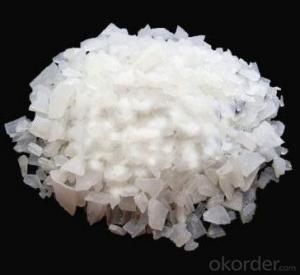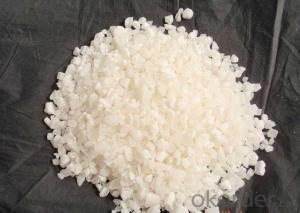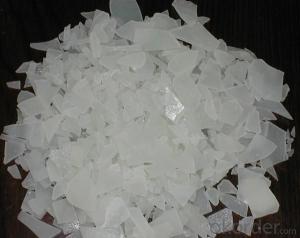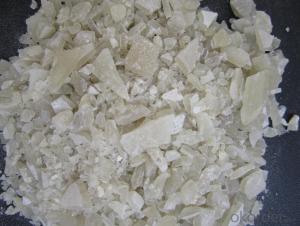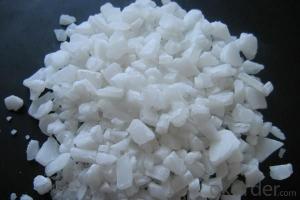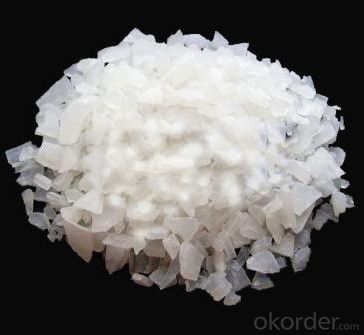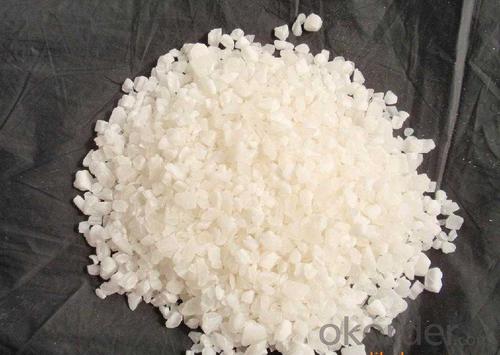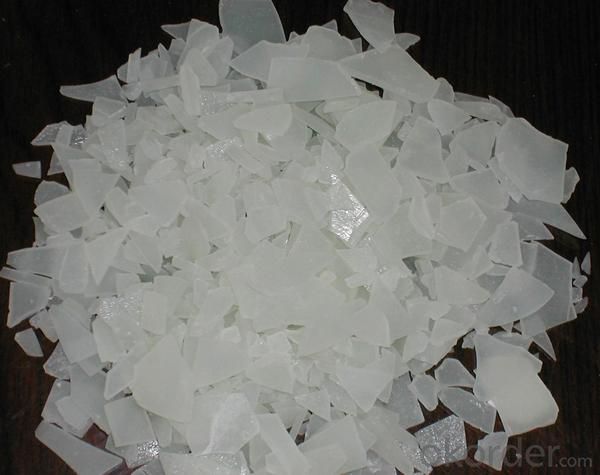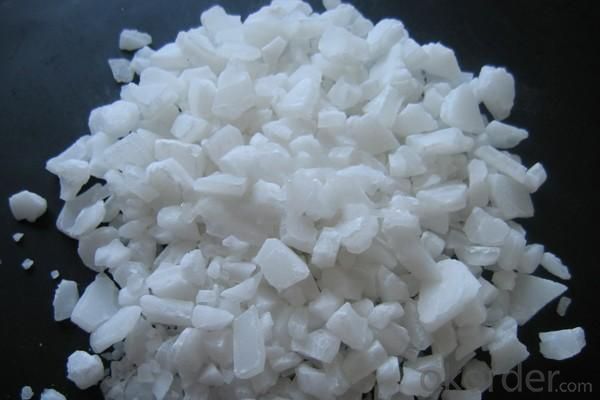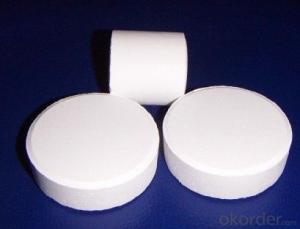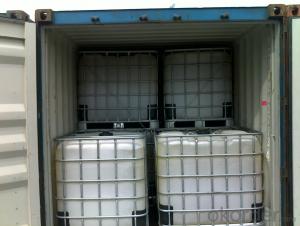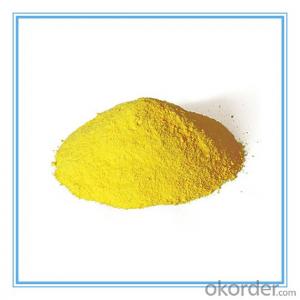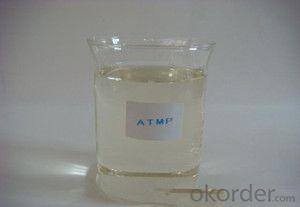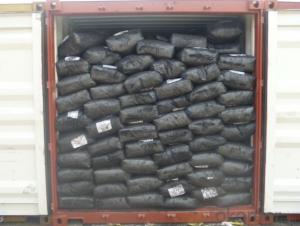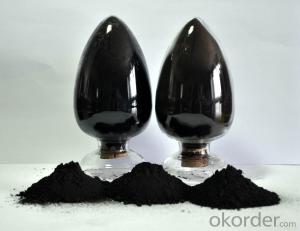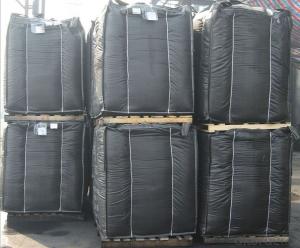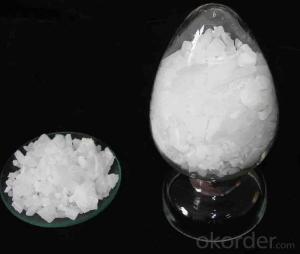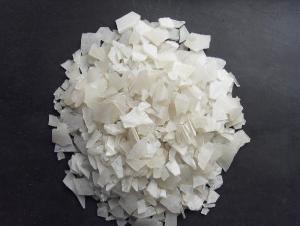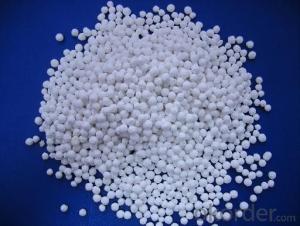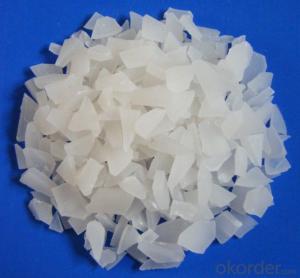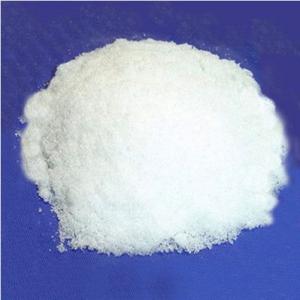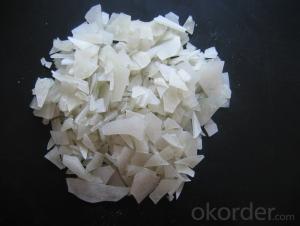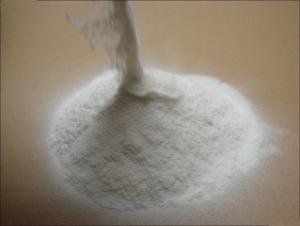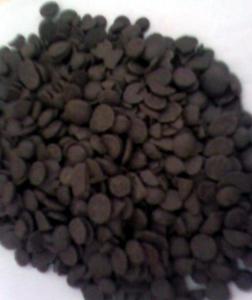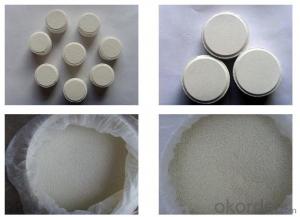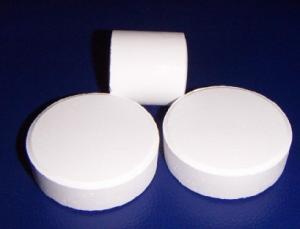Aluminum Sulfate Industrial Grade Used For Water Treatment
- Loading Port:
- Qingdao
- Payment Terms:
- TT OR LC
- Min Order Qty:
- 25 m.t.
- Supply Capability:
- 12000 m.t./month
OKorder Service Pledge
OKorder Financial Service
You Might Also Like
1. Chemical and Physical Properties:
Product name: Aluminium Sulphate or Aluminum Sulfate
Shape: Flakes or Granular or Powder.
EINECS NO.:233-135-0
CAS No.: 10043-01-3
HS.Code: 28332200
Molecular Formula: Al2(SO4)3
Appearance:It is white or grey flake,particle or massive crystallization.
Apt to cake after moisture absorption when laid in air for a long time.A little green because of Fe2+ ,yellow when Fe2+ is oxided to Fe3+.Soluble in water easily,and water solution is acid.
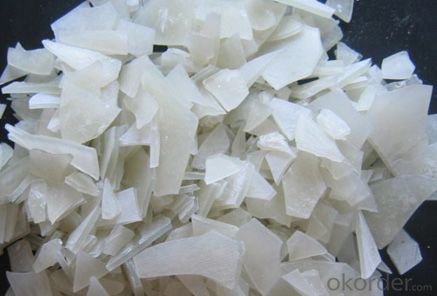
2. Specification:
Standard: HG/T 2225-2001 and HG/T 2227-2004
Items | Specifications | |||
I Type:Low Ferrous/Low Iron | II Type:Non-Ferrous/Iron-free | |||
First Class | Qualified | First Class | Qualified | |
Al2O3 % ≥ | 15.8 | 15.6 | 17 | 16 |
Ferrous(Fe )% ≤ | 0.5 | 0.7 | 0.005 | 0.01 |
Water Insolube % ≤ | 0.1 | 0.15 | 0.1 | 0.15 |
PH (1% aqueous solution) ≥ | 3.0 | 3.0 | 3.0 | 3.0 |
Arsenic(As) %≤ | 0.0005 | 0.0005 | ||
Heavy metal (Pb) %≤ | 0.002 | 0.002 | ||
3.Applications:
Water effluent treatment system
It's used for purification of drinking water and wastewater treatment by settling of impurities by
means of precipitation and flocculation.
Paper Industry
It helps in sizing of paper at neutral and alkaline pH, thus improving paper quality (reducing spots
and holes and improving sheet formation and strength) and sizing efficiency.
Textile Industry
It is used for color fixing in Naphthol based dyes for cotton fabric.
Other Uses
Leather tanning, lubricating compositions, fire retardants; decolorizing agent in petroleum, deodorizer; food additive; firming agent; dyeing mordant; foaming agent in firefighting foams; fireproofing cloth; catalyst; pH control; waterproofing concrete; aluminum compounds, zeolites etc.
4. Package:
Packaging Detail: PP/PE 50kg/bag;25kg/bag;Jumbo bag or according to customers' requirements.
20-25MT will be loaded in per 20'FCL container.
5. Attention and Storage:
The product is liable to absorb moisture and clot due to long-term exposure, so shady, cool and ventilated environment is needed.
Ammonium Aluminum Sulfate, Aluminum Ammonium Sulfate, Ammonium Alum, Alum
Molecular formula: AINH4(SO4)2·12H2O
CAS NO.: 7784-25-0
Character: white crytal
Useage: used in food, preserves, water purity, disinfection, rubber, leather, washing powder, livestock feed, pencils etc
Specification:
Purity -- 99.3%~100.5%
Moisture -- 4% max
Water Insoluble Matter -- 0.2% max
As -- 0.0002 max
Package: 25kg plastic woven bag
Capacity of loading: 25MT/1X20' FCL(non-palletized)
- Q: Biological enzymes and chemical catalysts of the differences in the source, nature and catalytic characteristics of the different, specific point
- Biological enzyme catalytic reaction conditions are mild, high selectivity, can not be infected
- Q: What happens to a catalyst after a chemical reaction?
- Only a catalyst? Poor catalyst. Catalysts get very little respect. Folks assume that catalysts don' do anything, yet they magically speed up a reaction without taking part in the reaction. That just isn't the case. Most chemical reactions take place in multiple steps. A catalyst can be a reactant in one step and a product in s subsequent step, thereby giving the impression that it did not react. The catalyst speeds up a chemical reaction by providing an alternate reaction pathway which has a lower activation energy. The lower activation energy means that more molecules will have the energy required to react, and the rate will be greater. So the bottom line is that the catalyst will have appeared not to have reacted, and returns to its original state.
- Q: A catalyst elevates the rate of a reaction by?
- reducing the energy required for the reactants to reach the transition state.
- Q: i know that the catalyst is not react in an reaction,,,so that i don't why could it speed up the reaction?? Further, how does the scientist determine the catalyst for certain reaction??please give me more example....i really want to know it! i do not have any idea about this...so hope your answer will help me....thanks!
- Catalysts reduces the activation energy needed for a reaction, that is the energy each atom needed to have in order to have an reaction.
- Q: How the catalyst accelerates the chemical reaction
- Reduced the activation energy required to reflect
- Q: Can chemical reaction limits be changed by catalyst or other methods?
- No, the catalyst can only speed up the chemical reaction, but can not change the chemical limit.
- Q: Hydrogen and nitrogen in the high temperature and pressure and catalyst conditions for the synthesis of ammonia chemical equation
- 3H2 + N2 = 2NH3 conditional catalyst
- Q: Nitrogen and hydrogen in the role of high temperature and pressure catalyst to generate ammonia chemical equation
- N2 + 3H2 = catalyst, high temperature and high pressure = 2NH3
- Q: Write a chemical formula in a chemical laboratory without the use of a catalyst for oxygen
- 2Na2O2 + 2H2O = 4NaOH + O2 ↑
Send your message to us
Aluminum Sulfate Industrial Grade Used For Water Treatment
- Loading Port:
- Qingdao
- Payment Terms:
- TT OR LC
- Min Order Qty:
- 25 m.t.
- Supply Capability:
- 12000 m.t./month
OKorder Service Pledge
OKorder Financial Service
Similar products
Hot products
Hot Searches
Related keywords
